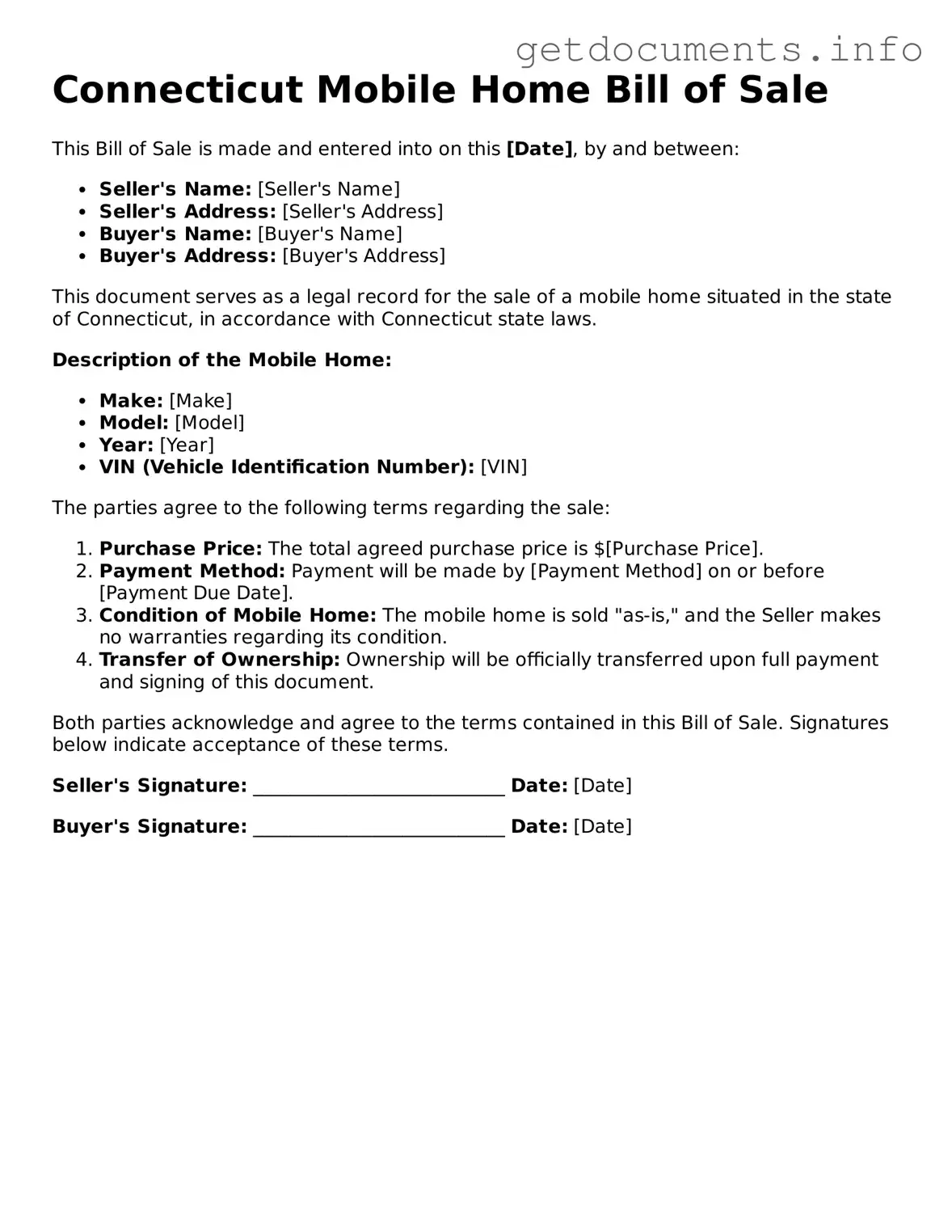Free Mobile Home Bill of Sale Template for Connecticut
The Connecticut Mobile Home Bill of Sale form serves as a legal document that facilitates the transfer of ownership for mobile homes in Connecticut. This form outlines essential details such as the buyer and seller's information, the mobile home's description, and the sale price, ensuring both parties are protected during the transaction. To begin the process of transferring ownership, fill out the form by clicking the button below.
Access Mobile Home Bill of Sale Editor

Free Mobile Home Bill of Sale Template for Connecticut
Access Mobile Home Bill of Sale Editor
Got places to be? Complete the form fast
Fill out Mobile Home Bill of Sale online and avoid printing or scanning.
Access Mobile Home Bill of Sale Editor
or
⇩ PDF File
